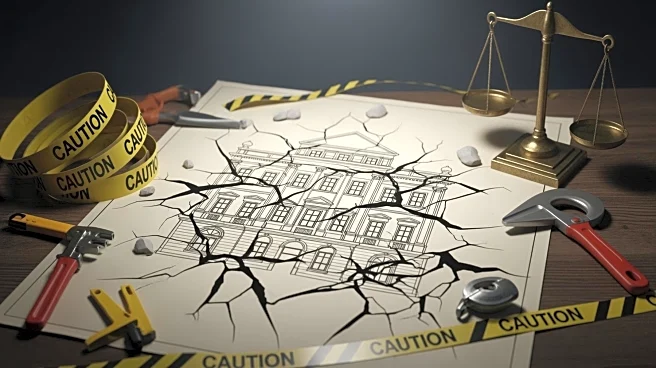What's Happening?
President Trump has initiated the demolition of the East Wing of the White House to construct a new ballroom, despite lacking the necessary legal approvals. The National Trust for Historic Preservation
and the National Capital Planning Commission, both responsible for overseeing such projects, were bypassed. The demolition has proceeded without the required public review processes, raising questions about the legality and ethics of the project. The new construction is reportedly funded by contributions from wealthy donors, including executives from major corporations, who were promised recognition in return.
Why It's Important?
The demolition of the East Wing without proper oversight highlights concerns about the unchecked power of the presidency and the erosion of legal and institutional safeguards. This development is significant as it reflects broader issues of governance and accountability in the U.S. The bypassing of regulatory bodies and the involvement of wealthy donors in funding the project raise ethical questions about influence and transparency in government actions. The situation underscores the potential for abuse of power and the need for robust checks and balances in the political system.
What's Next?
The lack of oversight and the controversial nature of the project may prompt calls for increased scrutiny and potential legal challenges. Stakeholders, including political leaders and civil society groups, may demand accountability and transparency in the administration's actions. The situation could lead to broader discussions about the role of money in politics and the importance of maintaining institutional checks on executive power.
Beyond the Headlines
The demolition of the East Wing serves as a metaphor for the broader dismantling of legal and constitutional norms under President Trump's administration. The situation raises questions about the long-term impact on democratic institutions and the rule of law. It also highlights the cultural and historical significance of the White House as a symbol of American democracy and the potential consequences of altering its structure without due process.










